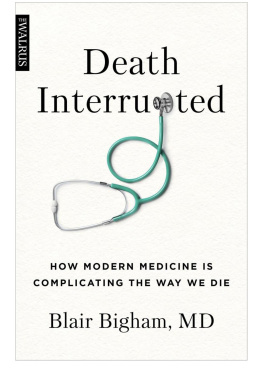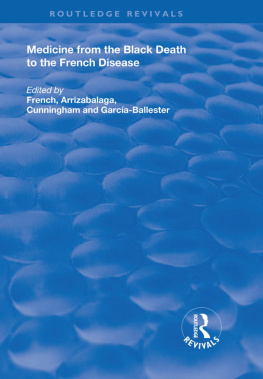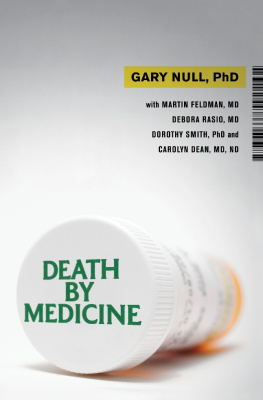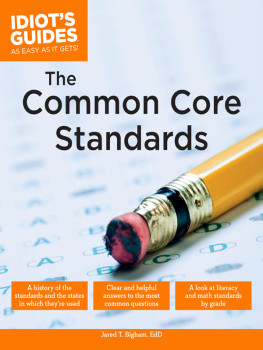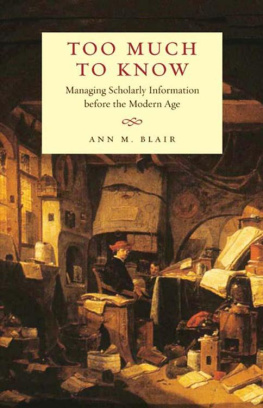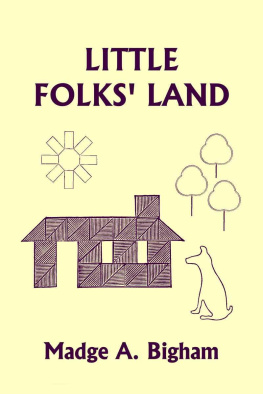The Walrus Books
The Walrus sparks essential Canadian conversation by publishing high-quality, fact-based journalism and producing ideas-focused events across the country. The Walrus Books, a partnership between The Walrus, House of Anansi Press, and the Chawkers Foundation Writers Project, supports the creation of Canadian nonfiction books of national interest.
thewalrus.ca/books
Copyright 2022 Blair Bigham
Published in Canada in 2022 and the USA in 2022 by House of Anansi Press Inc.
www.houseofanansi.com
All rights reserved. No part of this publication may be reproduced or transmitted in any form or by any means, electronic or mechanical, including photocopying, recording, or any information storage and retrieval system, without permission in writing from the publisher.
House of Anansi Press is a Global Certified Accessible (GCA by Benetech) publisher. The ebook version of this book meets stringent accessibility standards and is available to students and readers with print disabilities.
26 25 24 23 22 1 2 3 4 5
Library and Archives Canada Cataloguing in Publication
Title: Death interrupted : how modern medicine is complicating the way we die / Blair Bigham.
Names: Bigham, Blair, author.
Identifiers: Canadiana (print) 20220203571 | Canadiana (ebook) 20220203601 |
ISBN 9781487008543
(softcover) | ISBN 9781487008550 (EPUB)
Subjects: LCSH: Terminal care. | LCSH: Death. | LCSH: Medicine.
Classification: LCC R726.8 .B54 2022 | DDC 362.17/5dc23
Book design: Alysia Shewchuk
House of Anansi Press respectfully acknowledges that the land on which we operate is the Traditional Territory of many Nations, including the Anishinabeg, the Wendat, and the Haudenosaunee. It is also the Treaty Lands of the Mississaugas of the Credit.
We acknowledge for their financial support of our publishing program the Canada Council for the Arts, the Ontario Arts Council, and the Government of Canada.
For those who let me into their lives
when everything is crashing down around them
Introduction
What about this one? Rakesh hollered at me from across the auditorium-turned-emergency room. He was pointing at a stretcher two paramedics were rolling past him.
Shes dead-dead, I yelled back, before returning to triaging the tidal wave of medical students made up with smoke-streaked faces, red-dyed corn syrup blood, and papier mch burns.
We were about thirty minutes into a disaster simulation in my medical residency at McMaster University, a test of our hospitals emergency department and of us as senior residents to handle an unexpected influx of injured patients. The script was predictable: a nearby soccer stadium had been attacked with improvised explosives, and concerns about chemical weapons were being reported by various sources.
Judges in black T-shirts hovered around with clipboards, detailing our actions for the debriefing that would follow. Over one hundred patients in one hundred minutes had to be sorted and attended to, and it was my job to assign one of four priorities to each of them and place an index-card-sized triage tag around their necks with a colour to indicate my decision.
Green was good: it meant they could walk and talk and sit in a chair for hours while we tended to the sickest patients. Yellow was pretty much okay too: they could wait but had the potential to deteriorate. Red was bad: they had injuries like bleeding arteries and collapsed lungs, and required immediate treatment to save their lives. And blue was the worst: they were dead. In the old days, those tags used to be black, and the phrase black tagged had become synonymous with dead. That was why wed changed the colour to blue so as not to freak anyone out by slapping a black tag on their friend.
Heres the thing, though. The criteria for a blue tag in a mass casualty situation isnt what youd think. It doesnt mean youre dead, though you might be. Blue technically stands for expectant meaning that even if we treated you, youd still likely die. The tricky part for me, as the triage officer, was that the odds of someone dying was tied to the availability of doctors, nurses, ventilators, surgeons, blood, chest drains,
CT
scanners, and all the other things that make a hospital tick. If resources were in good supply, the patient was a red and a trauma team would do everything possible to save their life. But if someone was a blue, they were off to the morgue.
It was up to Rakesh and me, randomly assigned to the two most critical roles in the exercise, to save as many lives as we could. We were both fifth-year residents, and when we werent training together in the hospital, we often hung out at Synonym or at Truth, two indie coffee shops on gentrified James Street, where we basically camped out for entire days to study or gossip with a constant stream of overpriced caffeine.
If you didnt know him any better, youd think Rakesh wasnt that interested in being a doctor, but hes just a super mellow guy, which is one of the reasons he became my best friend in residency. So it gave me some amusement to see him amped up during the simulation, yelling at me from the mock trauma bay he was assigned to. It was a sign the simulation was working: we were feeling the heat in the disaster wed been thrown into by the simulation team.
Rakesh had just opened up a space for another critical patient when he asked me about the body being wheeled past on the stretcher. Id given her a blue tag. To the many observers, it would appear that he was asking if she was dead. But I knew he really wanted me to say how dead I thought she was, whether she was worth the precious resources he was allocating. And not for the first time in my career, I declared the odds to be zero. She was dead-dead, I told him.
When the phrase came out of my mouth, I took a pause. It wasnt so much an intellectual moment, because there was no time for those. In the chaos of the emergency room, instinct and gut decisions reign. It was more an acknowledgement that alive and dead arent black and white. Its not binary, at least not anymore. And for doctors like me, that presents a dilemma of enormous magnitude.
Treating dead people is just part of the job when youre a paramedic or an emergency room nurse or an intensive care doctor. Restoring a heartbeat requires nothing more than solving a physiological riddle. Life requires very little for it to chug along: oxygen, glucose, and heat are the only ingredients needed for the power plants in your cells. As long as you can get those three ingredients from the environment into your body, and circulate them to your nose and toes and everything in between, you can be kept going.
You might hope scientists and doctors could see life and death in a black and white way a binary construct with clear definitions. I certainly did in my life as a paramedic, where the calls I responded to with lights and sirens blaring had clear-cut stakes: there were those who could be saved, and there were those who proved to be beyond chest compressions, epinephrine, and blood transfusions, who couldnt be saved, no matter our desire or skill or brilliance. The dead-dead.

